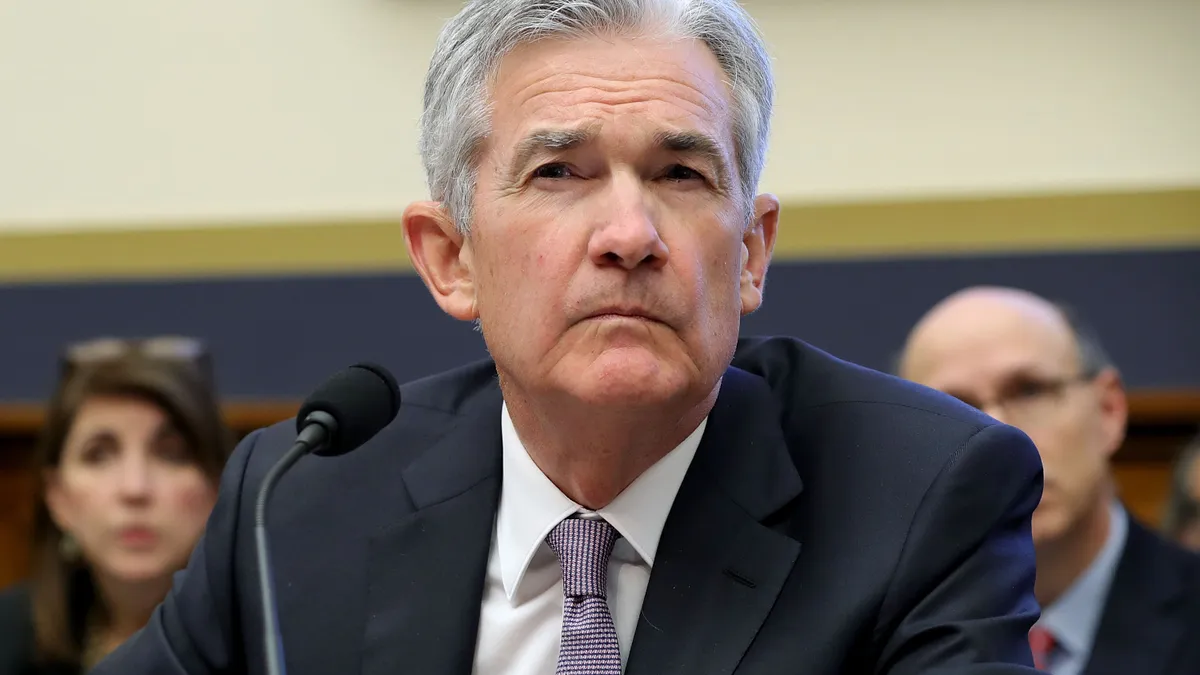Dive Brief:
- The Federal Reserve, committed to boosting employment, may try to curb prices too late because of its view that accelerating inflation is transitory, according to the Congressional Research Service (CRS).
-
“The Fed may be correct in its assessment today that higher inflation will not persist, but if it is wrong, it might not realize until it is too late and higher inflation has become embedded in people’s expectations,” the CRS said in a report. “In that case, it could be costly to the economy to get the ‘inflation genie back in the bottle’ down the road.”
-
The Fed’s preferred inflation measure — the core personal consumption expenditures price index — rose 3.5% in June compared with a year earlier, well above the central bank’s 2% target.
Dive Insight:
Supply chain bottlenecks, record monetary and fiscal stimulus, pandemic-induced labor shortages, a burst in post-lockdown economic growth and a rebound in consumer spending have pushed up prices in recent months.
In response to concerns that the U.S. faces sustained price gains, Fed Chairman Jerome Powell said inflation will ease as the economy recovers from its most abrupt downturn since the Great Depression.
Powell and other policy makers are holding the benchmark interest rate at a record low to revive employment, which is about 7 million below its pre-pandemic level. Their policy approach aligns with a 2020 decision to allow inflation to exceed the Fed’s 2% target to make up for years of undershooting that level.
“The Fed’s decision to not withdraw stimulus in reaction to inflation that is already above its 2% target underlines how its strategy for achieving price stability has changed,” CRS said.
“To some critics, this change in philosophy is a sign that the Fed no longer has the same commitment to ensuring price stability,” CRS said. “This could be problematic, because if individuals believe the Fed is no longer committed to low inflation, it makes it harder for the Fed to achieve low inflation because inflationary expectations could become unmoored.”
A failure by the Fed to avert persistent high inflation would disrupt efforts by CFOs to execute on their spending strategies.
“CFOs lose the power to accurately predict what will happen in the near-term and long-term future,” according to Barry Keating, a professor at Notre Dame’s Mendoza College of Business. “Business relationships that have been constant for 40 or 50 years are going to change."
Temporary shocks
The report by CRS, a self-described “nonpartisan shared staff” to Congress, coincides with an intensifying partisan debate over the inflation outlook.
President Biden on July 19 noted that prices are rising but aligned with assertions by Powell and Treasury Secretary Janet Yellen by saying that higher inflation is temporary.
“As demand returns, there’s going to be global supply chain challenges,” Biden said, adding that about 60% of the recent upward pressure on prices has come from temporary shocks to supply and demand.
Just days before, Biden and Democratic lawmakers backed a $3.5 trillion budget plan that would increase taxes on the wealthy and fund ambitious social and environmental programs, including expanded health care and increased spending on renewable energy.
Congress since early 2020 has already broken all spending records by authorizing $5.9 trillion in fiscal support to limit harm from the pandemic, according to the Committee for a Responsible Federal Budget.
Republicans have lambasted Democrats for the spending and blamed them for inflation.
“Runaway costs and surging inflation are a huge worry for middle-class families,” Senate Minority Leader Mitch McConnell, R-Ky., said on July 19. “Another multi-trillion-dollar reckless taxing and spending spree is the last thing American families need.”













